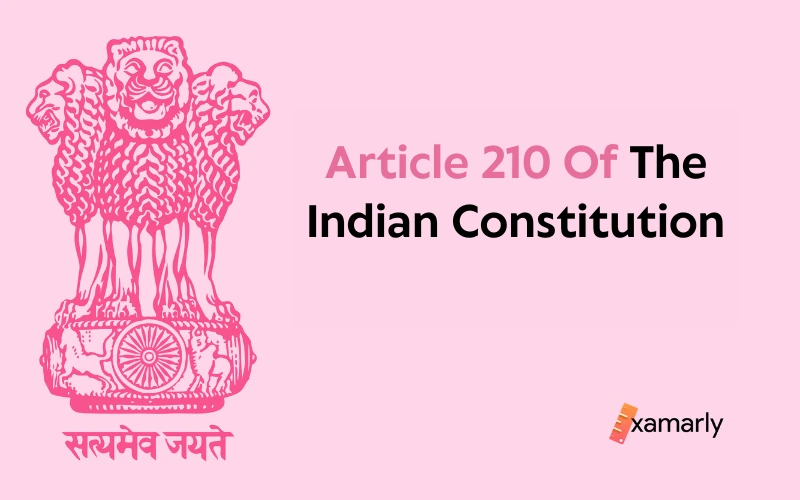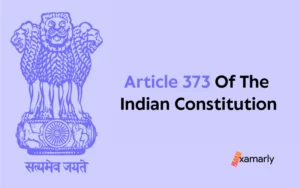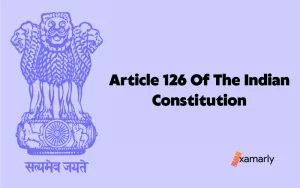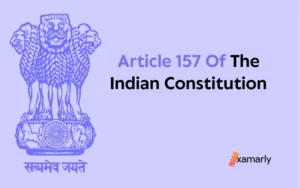Article 210 of the Indian Constitution contains provisions pertaining to the language to be used in the Legislature.
The terminology used in lawmaking becomes crucial in this context.
On this page, you will gain an informed perspective on Article 210, which will enable you to comprehend the languages that may be used in the State legislature.
- What Is Article 210 Of The Indian Constitution?
- When Was Article 210 Adopted?
- Is Article 210 Revised?
- Conclusion
- FAQs
- What Is Article 348 Of The Indian Constitution?
- Which Article Speaks About the language that must be used in State Legislature?
- Who Has The Authority To Grant Relief To Any Person Who Is Not Able To Express Himself Or Herself In The Language Set By Article 210?
- What Does Article 210 Of The Indian Constitution Specify?
- What Is Part XVII Of The Indian Constitution?
- When Was Article 210 Enacted?
- Name the Acts That Have Revised Clause 2 O f Article 210.
What Is Article 210 Of The Indian Constitution?
Constitutional Provisions of Article 210 are outlined in the 2 clauses stated below:
- Nothing in Part XVII shall prevent the Legislature of a State from conducting its business in Hindi or English, or in the official language or languages of the State, pursuant to the provisions of Article 348:
With the proviso that any member who is unable to adequately express himself in one of the aforementioned languages may speak to the House in his native tongue with the permission of the Speaker of the Legislative Assembly or the Chairman of the Legislative Council, or a person acting in their respective capacities, as the situation may be. - After fifteen years have passed since the beginning of this Constitution, the words “or in English” will be deemed to have been eliminated from Article 210, unless the State Legislature by legislation otherwise specifies:
With the proviso that this clause shall apply to the legislatures of the States of Himachal Pradesh, Manipur, Meghalaya, and Tripura as if the words “twenty-five years” were replaced for the words “fifteen years” therein:
Furthermore, this clause will take effect as if the words “forty years” were replaced by the terms “fifteen years” whenever they appear in connection to the legislatures of the States of Goa, Arunachal Pradesh, and Mizoram.
When Was Article 210 Adopted?
On September 17, 1949, the discussion centered on a draft of Article 184, also known as Article 210. As the primary languages to be used in the State Legislature, it specified Hindi and English as well as regional languages.
The chairman of the draft committee suggested completely replacing the draft article with a provision stating that any member who is unable to communicate in any of the aforementioned languages may receive an accommodation from the Speaker or Chairman.
Even though there was one change that was presented, it was ultimately withdrawn. The 17th of September 1949 saw the adoption of Draft Article 184.
Is Article 210 Revised?
Yes, Clause 2 of Article 210 has been revised with time. The following is a list of various Acts that have revised the aforementioned clause:
- State of Himachal Pradesh Act, 1970.
- North-Eastern Areas (Reorganisation) Act, 1971.
- State of Mizoram Act, 1986.
- State of Arunachal Pradesh Act, 1986.
- Goa, Daman, and Diu Reorganisation Act, 1987.
Conclusion
Every single proceeding that takes place in the State Legislature, such as the process of creating new laws, should be carried out in either the state’s official language, the language of the state, Hindi, or English. Article 210 of the Constitution of India outlines this provision in its entirety.
In this context, the importance of the language that is going to be utilized in the legislation becomes quite important.
Moreover, there is a provision that states that the word “English” from Article 210 will be dropped on its own if the State Legislature does not pass any laws mandating the use of the English language even after fifteen years.
FAQs
What Is Article 348 Of The Indian Constitution?
The terminology that must be used in the Supreme Court and in the High Courts, as well as for Acts, Bills, etc, is spelled out in great detail in Article 348 of the Indian constitution.
Which Article Speaks About the language that must be used in State Legislature?
The language to be used in the Legislature is covered in Article 210 of the Indian Constitution.
Who Has The Authority To Grant Relief To Any Person Who Is Not Able To Express Himself Or Herself In The Language Set By Article 210?
If the Speaker of the Legislative Assembly or the Chairman of the Legislative Council (or their designee) determines that a member cannot effectively express himself in either of the languages listed in Article 210, that member may address the House in his mother tongue.
What Does Article 210 Of The Indian Constitution Specify?
It is essential that all proceedings in the State Legislature be conducted in Hindi, English, the state language, or the official language of the state. This includes the process of passing new legislation. The complete ambit of this provision is spelled out in Article 210 of the Indian Constitution.
What Is Part XVII Of The Indian Constitution?
The laws relating to India’s constitution and the union of states that make up that country are collected in Part XVII. Articles on Official Language are grouped together in this part of the constitution.
When Was Article 210 Enacted?
The adoption of Article 210 took place on September 17, 1949.
Name the Acts That Have Revised Clause 2 O f Article 210.
The original version of Clause 2 of Article 210 has been modified as time has passed. Below are a number of Acts that have amended the aforementioned clause:
1. State of Himachal Pradesh Act, 1970.
2. North-Eastern Areas (Reorganisation) Act, 1971.
3. State of Mizoram Act, 1986.
4. State of Arunachal Pradesh Act, 1986.
5. Goa, Daman, and Diu Reorganisation Act, 1987.






